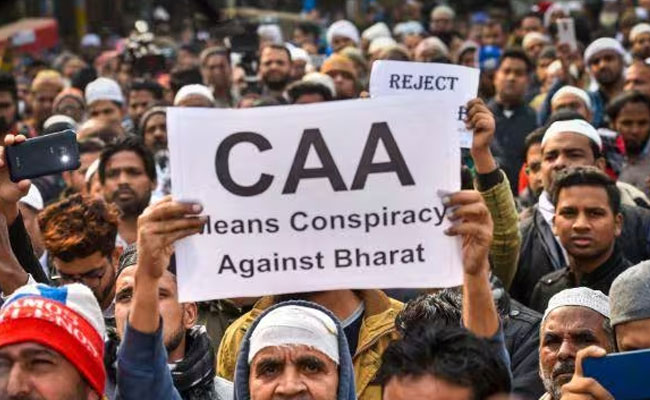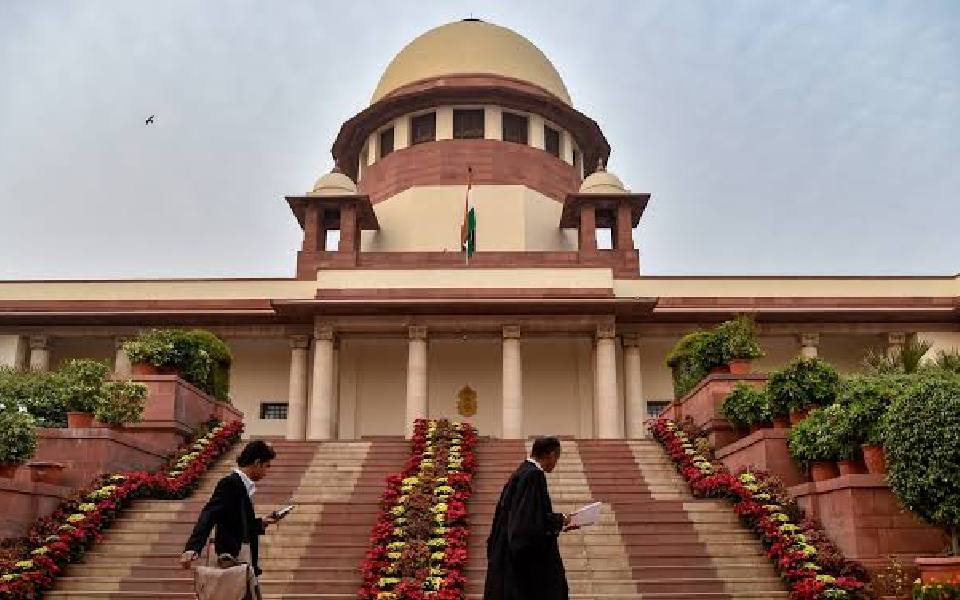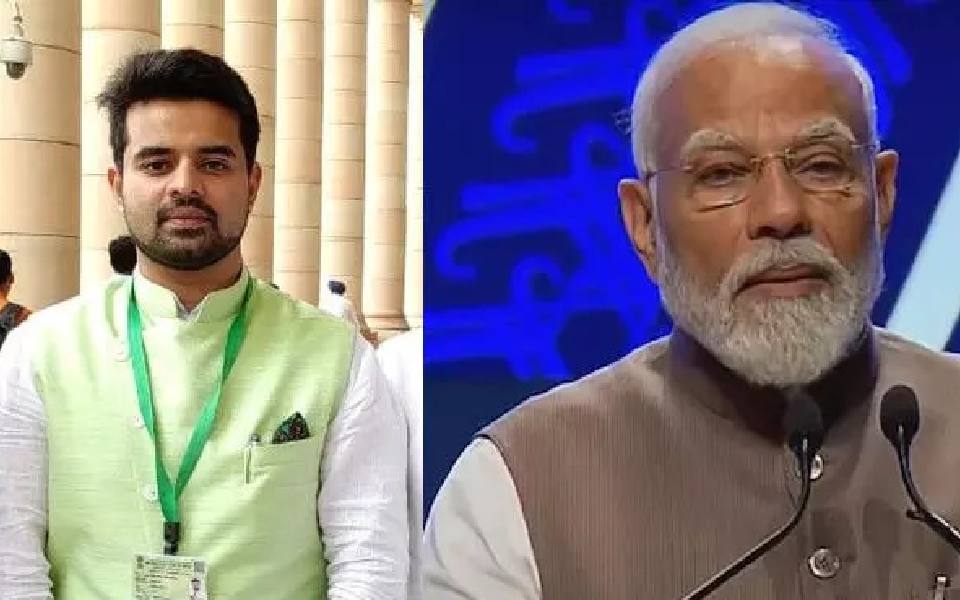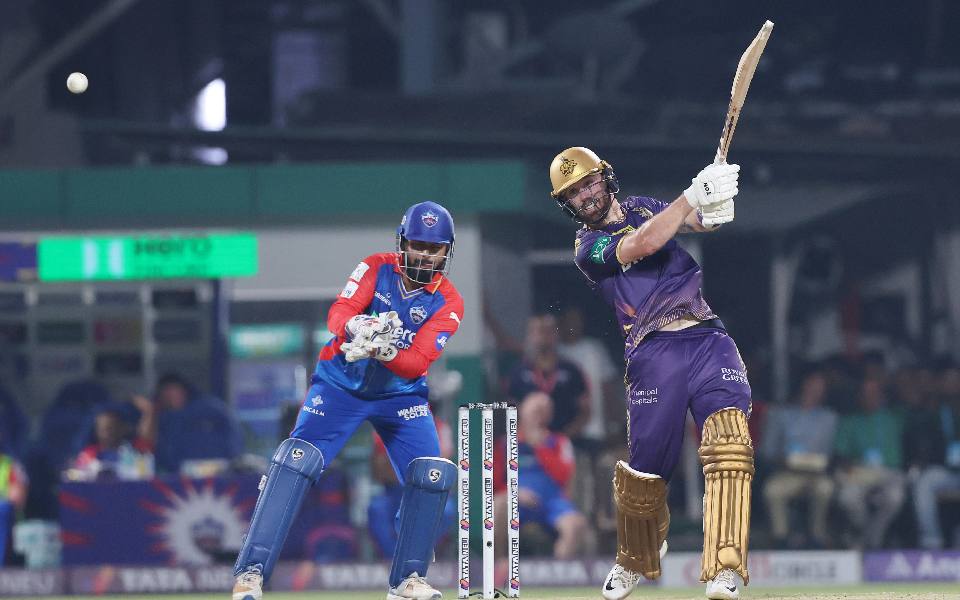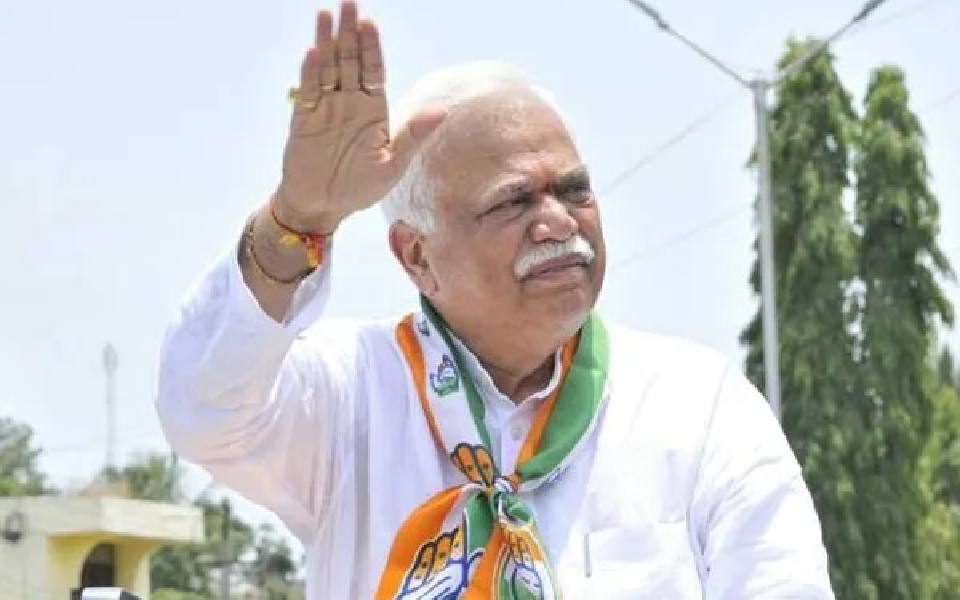Kolkata (PTI): There is no provision under the Citizenship (Amendment) Act, 2019 and its rules, notified on March 11, to maintain records of citizenship applications filed online under the law, according to an RTI reply by the Union Home Ministry.
The ministry's response came to RTI applications filed by Bangla Pokkho, an organisation that claims to work for the rights of Bengalis, seeking information on the number of people who applied for citizenship through the website provided by the Home Ministry on March 12 and 13, the two days following the notification of the CAA rules.
The Union Home Ministry in a communication (F No 26027/94/2024-IC-I, dated April 15, 2024) stated, “… that the records are not being maintained as desired by you because the Citizenship Act, 1955 & Citizenship (Amendment) Act, 2019 and the rules made thereunder does not have the provision to maintain the records of Citizenship application received.”
"Further, as per the RTI Act, 2005, CPIO is not authorised to create information. Hence the information sought may be treated as NIL,” said the communication.
PTI possesses a copy of the communication disbursed by the Foreigners Division (Citizenship Wing) of the Home Ministry.
The RTI applications were filed by Md Sahin of Bangla Pokkho.
“Such a response is ridiculous given that all CAA applications are made online and are centrally digitised,” said Garga Chatterjee, general secretary of Bangla Pokkho.
Chatterjee claimed that the people may be reluctant to apply due to the mandatory requirement to declare under affidavit the applicant’s country of origin and upload it on the website with documentary evidence.
“Since Indian refugees, including Hindu Bengali refugees like the Matuas, are already enjoying citizenship by the virtue of documents like Aadhar, ration and EPIC cards which they already possess, they have no wish to declare themselves as foreigners,” Chatterjee claimed.
He claimed the CAA was “never designed to confer Indian citizenship to Hindu Bengali refugees but to identify Hindu Bengalis having Pakistani or Bangladeshi origins”, and called the whole exercise “a fraud”.
The BJP came out with a sharp response to the allegations, calling it attempts by the opposition to mislead the people.
“Every law, once notified, requires a teething period before it is enforced completely. This is such a period," said Samik Bhattacharya, BJP MP and the spokesperson of the party’s West Bengal unit.
"Since the elections are knocking on the doors, we have, for the time being, only held back the required push that’s needed to be given to people for applying for CAA,” he said.
Citing the “present lack of infrastructure and other factors needed to reach out to the prospective applicants”, Bhattacharya asserted that the BJP would go full throttle for CAA implementation once the elections are over.
“There will be no compromise on CAA. We will implement it. Period. We are talking about it in all our public meetings.
"It's just that we have chosen to stay away from countering the opposition’s efforts to spread confusion over CAA since we are certain they would get no political benefits out of it,” Bhattacharya maintained.
The Trinamool Congress, which has been opposing CAA implementation, said the RTI response was a vindication of its stand on the issue.
“It is unfathomable that the government has no records of how many citizenship applications have been received," said Saket Gokhale, TMC MP in Rajya Sabha.
"If an application is made on a designated website, there is always a record of it. The CAA is nothing but a political tool that has been revived by the BJP just before the elections to fool people,” he said.
The contentious CAA -- which offers citizenship to non-Muslim minority immigrants from Bangladesh, Pakistan and Afghanistan who entered India on or before December 31, 2014, to escape religious persecution -- is among the major poll issues in parts of West Bengal and in Assam and several other northeastern states.
It is especially being raised in regions where minority groups from neighbouring nations have rallied behind the BJP for the implementation of the CAA which was passed by the Parliament in December 2019.
There were protests against the CAA in several parts of the country. Its rules were notified only last month, paving the way for its implementation.
Let the Truth be known. If you read VB and like VB, please be a VB Supporter and Help us deliver the Truth to one and all.
New Delhi, Apr 29: The Supreme Court on Monday stayed a Calcutta High Court order directing the CBI to probe the role of West Bengal government officials in a teacher recruitment scam. It, however, refused to stay for now the cancellation of the appointment of over 25,000 teachers and non-teaching staff.
The top court was hearing a plea by the West Bengal government against a high court order invalidating the appointment of 25,753 teachers and non-teaching staff made by the School Service Commission (SSC) in state-run and state-aided schools.
A bench of Chief Justice DY Chandrachud, Justice JB Pardiwala and Justice Manoj Misra, however, refused to stay the high court order cancelling the appointments and said it will hear the matter on May 6.
Observing that taking away the jobs of about 25,000 persons is a serious matter, the top court asked if it is possible to segregate the valid and invalid appointments on the basis of the material available and who the beneficiaries of the fraud are.
"We will stay the direction which says the CBI (Central Bureau of Investigation) will undertake further investigation against officials in the state government," the bench said.
Calcutta High Court had said the CBI would undertake further investigations with regard to the persons in the state government involved in approving the creation of supernumerary posts to accommodate illegal appointments.
If necessary, the CBI will undertake custodial interrogation of such persons involved, it had said.
Challenging the order, the state government, in its appeal filed before the top court, said the high court cancelled the appointments "arbitrarily".
"The high court failed to appreciate the ramification of cancelling the entire selection process, leading to straightaway termination of teaching and non-teaching staff from service with immediate effect, without giving sufficient time to the petitioner state to deal with such an exigency, rendering the education system at a standstill," the plea said.
Calcutta High Court last week declared the selection process as "null and void" and directed the CBI to probe the appointment process. It also asked the central agency to submit a report within three months.
"All appointments granted in the selection processes involved being violative of articles 14 and 16 of the Constitution of India, are declared null and void and cancelled," the high court said in its April 22 order.
The high court said those appointed outside the officially available 24,640 vacancies, appointed after the expiry of the official date of recruitment, and those who submitted blank Optical Mark Recognition (OMR) sheets but obtained appointment to return all remunerations and benefits received by them with 12 per cent interest per annum within four weeks.
Observing that it had given "anxious consideration to the passionate plea" that persons who obtained the appointments legally would be prejudiced if the entire selection process was cancelled, the bench said it hardly had any choice left.
The high court held that all appointments involved were violative of articles 14 (equality before law) and 16 (prohibiting discrimination in employment in any government office) of the Constitution.
"It is shocking that, at the level of the cabinet of the state government, a decision is taken to protect employment obtained fraudulently in a selection process conducted by SSC for state-funded schools, knowing fully well that, such appointments were obtained beyond the panel and after expiry of the panel, at the bare minimum," the high court had said.
It said unless "there is a deep connection between the persons perpetuating the fraud and the beneficiaries" with persons involved in the decision-making process, such action to create supernumerary posts to protect illegal appointments is "inconceivable".
The division bench had also rejected a prayer by some appellants, including the SSC, for a stay on the order and asked the commission to initiate a fresh appointment process within a fortnight from the date of the results of the ongoing Lok Sabha elections.
The bench, constituted by the high court chief justice on a direction of the Supreme Court, had heard 350 petitions and appeals relating to the selection of candidates for appointment by the SSC in the categories of teachers of classes 9, 10, 11 and 12 and group-C and D staffers through the SLST-2016.
In its 282-page judgment, the high court had said retaining appointees selected through "such a dubious process" would be contrary to public interest.

